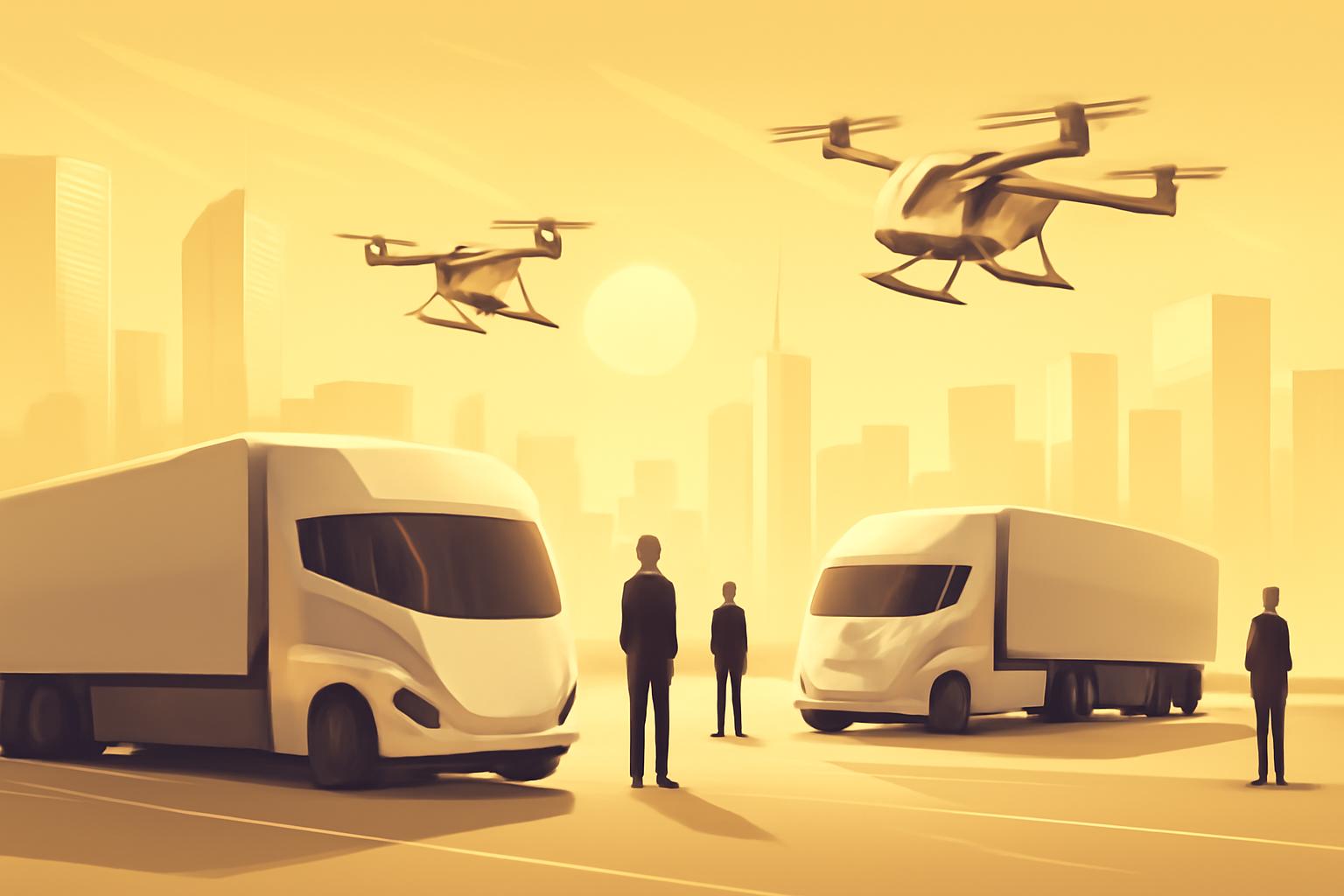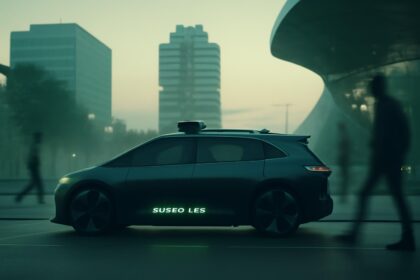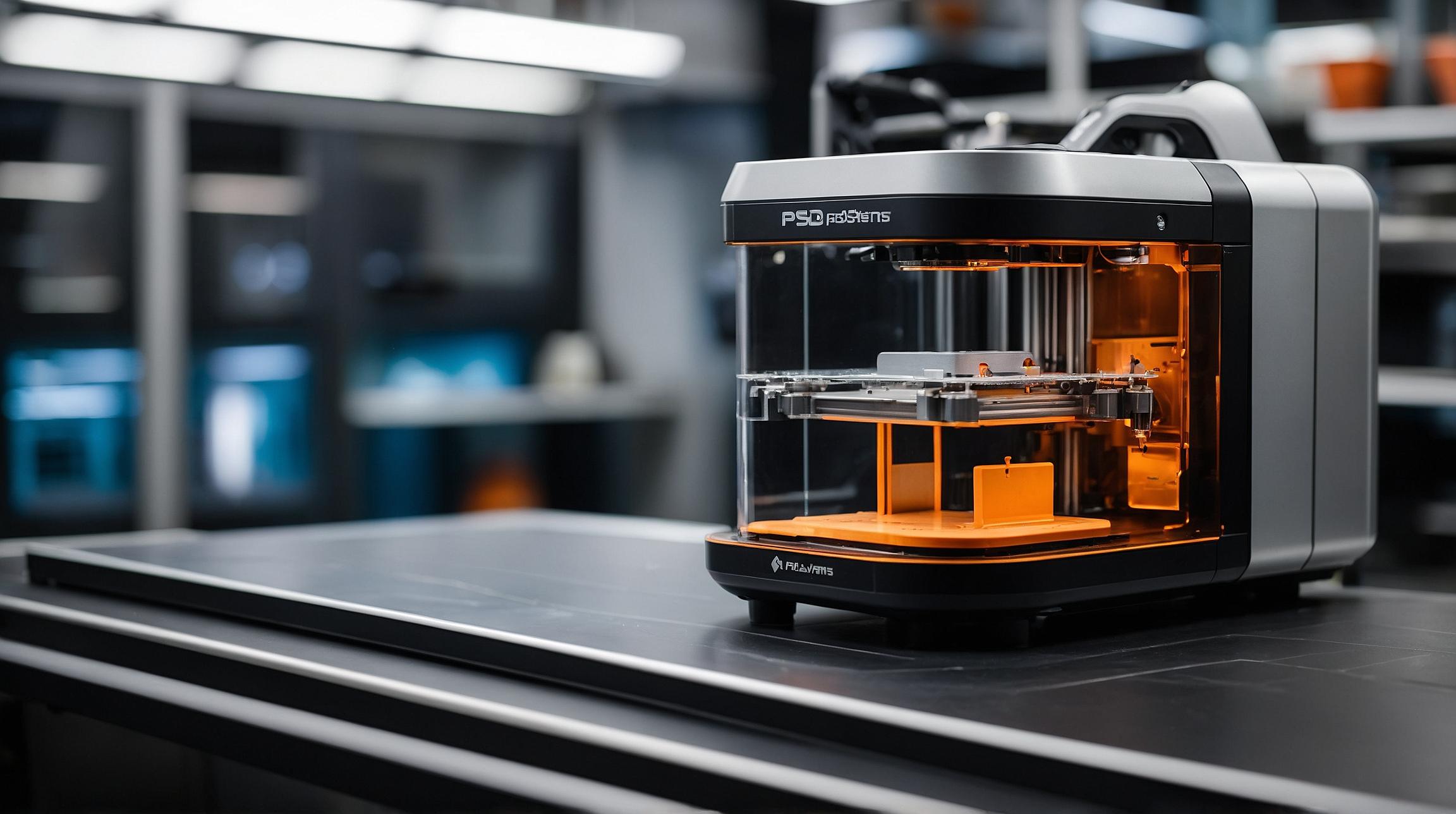Gatik Expands Autonomous Middle-Mile Trucking Partnership with Loblaw
Gatik, an autonomous vehicle and logistics startup specializing in middle-mile delivery, announced a significant multi-year commercial partnership with Loblaw, Canada’s largest retailer. The agreement entails deploying 20 autonomous trucks by the end of 2025, with an additional 30 trucks planned for 2026, to serve Loblaw’s network across the Greater Toronto Area. Unlike fixed-route pilot programs, these third-generation autonomous trucks will operate across Loblaw’s regional distribution network, managing pickups from two distribution centers and delivering to over 300 retail stores under multiple Loblaw brands. CEO Gautam Narang emphasized the commercial and operational complexity of the deployment.
Kodiak Robotics Goes Public, Raises $275 Million to Scale Autonomous Trucking
Kodiak Robotics, a pioneer in developing self-driving trucks for highway, industrial, and defense applications, commenced trading on Nasdaq under tickers KDK and KDKRW following a merger with special-purpose acquisition company Ares Acquisition Corporation II. The deal valued Kodiak AI at approximately $2.5 billion and raised $275 million in financing. Founder and CEO Don Burnette highlighted the capital-intensive nature of scaling autonomous driving technology and cited market timing as a decisive factor in opting for a SPAC over a traditional IPO. Despite an initial market dip, Kodiak’s public debut marks a milestone in the commercialization of autonomous trucking. Burnette also expressed strong confidence in the defense sector’s demand for unstructured autonomy, positioning Kodiak as a specialist in logistics and reconnaissance ground vehicle applications.
Hyundai Confirms Leadership Restructuring at Electric Air Taxi Startup Supernal
Following reports of halted work and executive departures, Hyundai Motor Group has officially confirmed a broader reorganization within its electric air taxi subsidiary, Supernal. Key executives including Chief Strategy Officer Jaeyong Song and Chief Safety Officer Tracy Lamb are transitioning out of their roles. Song’s departure is particularly noteworthy given his prior leadership of Hyundai’s Advanced Air Mobility division, from which Supernal was spun off in 2021. The reorganization also includes Lina Yang, previously Supernal’s Chief of Staff and Head of Intelligent Systems. Hyundai’s moves indicate a strategic pivot amid challenges in the urban air mobility market.
Mobility Startups Secure Funding Amid Industry Shifts
Several startups in the mobility sector have recently closed notable funding rounds. Anode Technology Company, founded by the original Moxion Power team, raised $9 million in seed funding to develop mobile battery and inverter systems for EV charging and remote power applications. The round was led by Eclipse Ventures, a firm active in transportation tech investments. Telo, an electric truck developer, secured $20 million in Series A financing co-led by designer Yves Béhar and Tesla co-founder Marc Tarpenning. The round also attracted investments from Salesforce CEO Marc Benioff and early-stage venture funds. Additionally, Indian ride-hailing platform Rapido doubled its valuation to $2.3 billion following a secondary share sale by food delivery giant Swiggy, signaling intensified competition in emerging markets.
Cybersecurity Challenges and Technological Advances in Transportation
The transportation sector faced significant cybersecurity incidents this week. Stellantis disclosed a data breach linked to its Salesforce database, impacting customer information. Collins Aerospace’s check-in system hack disrupted operations at multiple European airports, leading to arrests by U.K. authorities. Jaguar Land Rover continues to pause production due to ongoing cyberattack repercussions. On the technology front, battery materials startup Sila commenced operations at its Moses Lake, Washington facility, pioneering large-scale silicon anode production aimed at enhancing EV battery range and charging speed. Initial capacity targets supply for 20,000 to 50,000 vehicles with potential expansion to 2.5 million. Meanwhile, major automakers are recalibrating their electric vehicle strategies. Honda is ending U.S. production of the Acura ZDX EV, while Stellantis canceled plans for a plug-in hybrid Jeep Gladiator. The National Highway Traffic Safety Administration has launched an investigation into Rivian over seat belt safety concerns in its electric delivery vans. Tesla diverged from industry peers by urging the Environmental Protection Agency to maintain current vehicle emissions standards, opposing calls for regulatory rollbacks.
Notable Startup Initiatives and Industry Collaborations
TuneIn, the audio streaming platform, partnered with the Federal Emergency Management Agency to deliver emergency alerts directly to drivers, enhancing public safety communications. Volvo Cars reaffirmed its commitment to U.S. manufacturing with plans to expand its Charleston, South Carolina plant to include hybrid vehicle production by the decade’s end. Waymo launched “Waymo for Business,” enabling companies to create accounts for employee access to robotaxi services in major cities including Los Angeles, Phoenix, and San Francisco. Amazon-owned autonomous vehicle company Zoox requested a federal exemption to commercially deploy its custom-built robotaxis, which operate without traditional manual controls.
Austin Russell Launches Russell AI Labs with $300 Million Stake in Emergence AI
Austin Russell, founder of lidar company Luminar, reemerged as co-founder of Russell AI Labs, a new venture focused on backing transformative AI and frontier technology firms. Despite his sudden departure from Luminar earlier this year following an ethics inquiry, Russell attracted high-profile partners including Markus Schäfer, CTO of Mercedes-Benz Group, and Murtaza Ahmed, former managing director at Goldman Sachs and SoftBank Vision Fund partner. Russell AI Labs announced a $300 million investment in agentic AI company Emergence AI as part of its debut, signaling a strong commitment to advancing artificial intelligence technologies.
FinOracleAI — Market View
The autonomous vehicle and mobility sectors continue to demonstrate robust innovation and capital influx despite ongoing operational and cybersecurity challenges. Kodiak Robotics’ public debut exemplifies investor confidence in autonomous trucking’s commercial potential, while Gatik’s expanded deployment signals maturation of middle-mile logistics applications.
- Opportunities: Expansion of autonomous logistics networks, strategic defense applications of autonomy, and growing interest in AI-driven mobility solutions.
- Risks: Market volatility post-SPAC listings, leadership instability in emerging air mobility ventures, and cybersecurity vulnerabilities affecting operational continuity.
- Technological Trends: Advances in battery materials manufacturing and integration of AI in transportation services.
- Regulatory Environment: Increased scrutiny on EV safety and emissions standards shaping automaker strategies.
Impact: These developments underscore a dynamic, capital-intensive industry navigating technological breakthroughs and market challenges. Stakeholders should monitor regulatory shifts, cybersecurity resilience, and the scalability of autonomous platforms as key determinants of future success.













